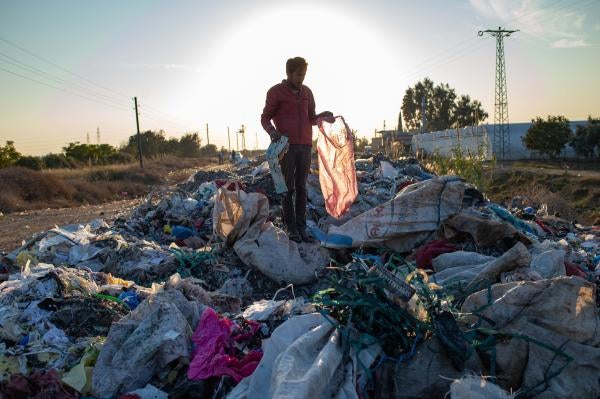“Plastics,” says Mr McGuire to a bewildered Benjamin in the iconic, absurd scene from the 1967 US movie The Graduate, “There’s a great future in plastics. Think about it. Will you think about it?”
Well, we’ve had 55 years to think about it, and we can honestly say that the future didn’t turn out quite as great as some hoped.
Plastics have become a human rights issue. The production, use, and disposal of plastics have significant impacts we should all be concerned about as rights-minded individuals – and as rights-respecting governments.
First, plastics contain toxic chemical additives, and these can pose significant threats to human health.
Second, because most are made from fossil fuels, plastics are helping to drive the climate crisis, which in turn threatens human rights.
And we are all surrounded with the stuff…
Each year, more than 300 million metric tons of plastic is created globally, and production is only growing. Many plastic products are single use and cannot be recycled. Many can take centuries to break down. Only 9 percent of plastic ever produced has been recycled.
And even with recycling, the human impact can be deeply troubling.
For example, HRW has documented how plastic recycling poses threats to the right to health of workers and local residents in Turkey. Other research shows that the shipment of plastic waste from countries in the Global North to countries with weak regulations can contribute to serious human rights harm.
All these concerns should be foremost in mind as governments sit down in Punta del Este, Uruguay, to begin their first round of negotiations for a Global Plastics Treaty.
International human rights law obligates governments to address the harms and to respect rights to health, water, and a healthy environment.
So, the result of the talks should be a legally binding treaty that ends the production of unnecessary new plastic and removes toxins from plastic products.
There’s a great future in curbing plastic production.







